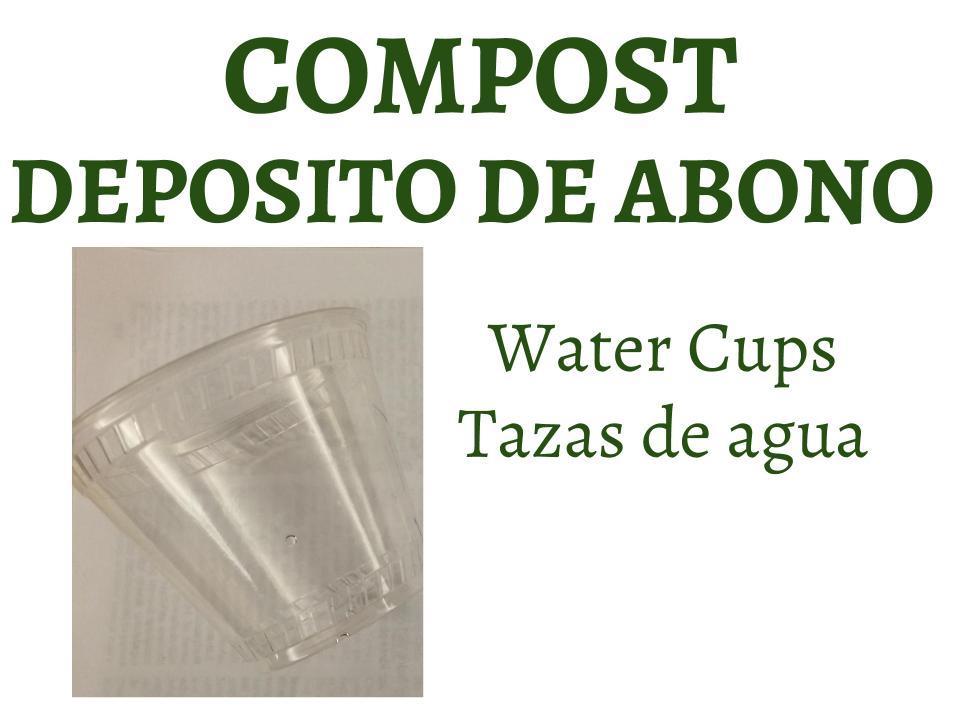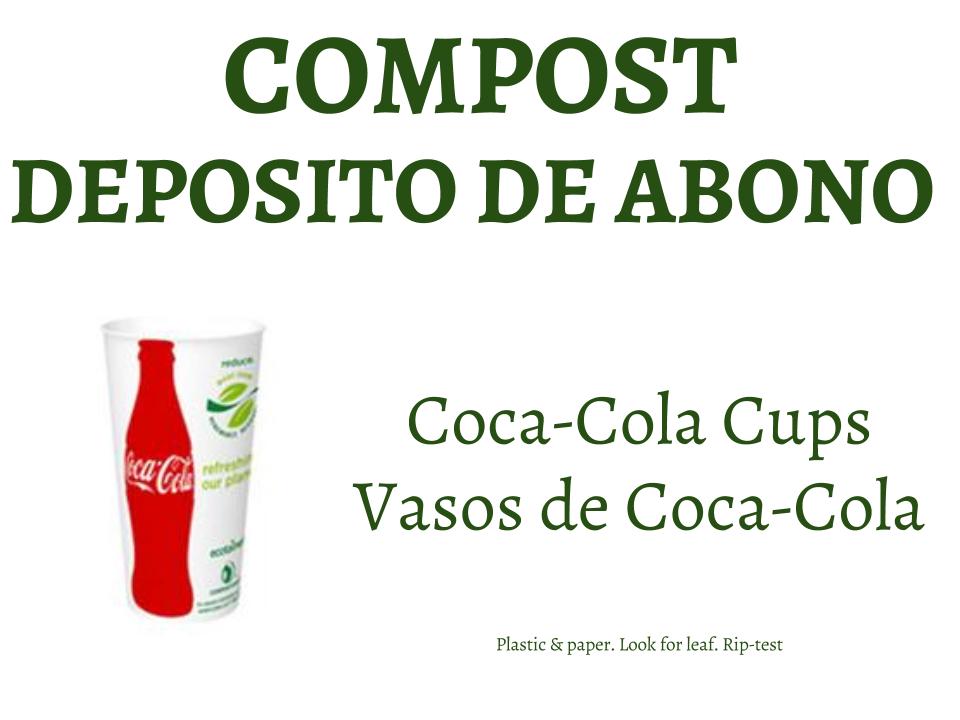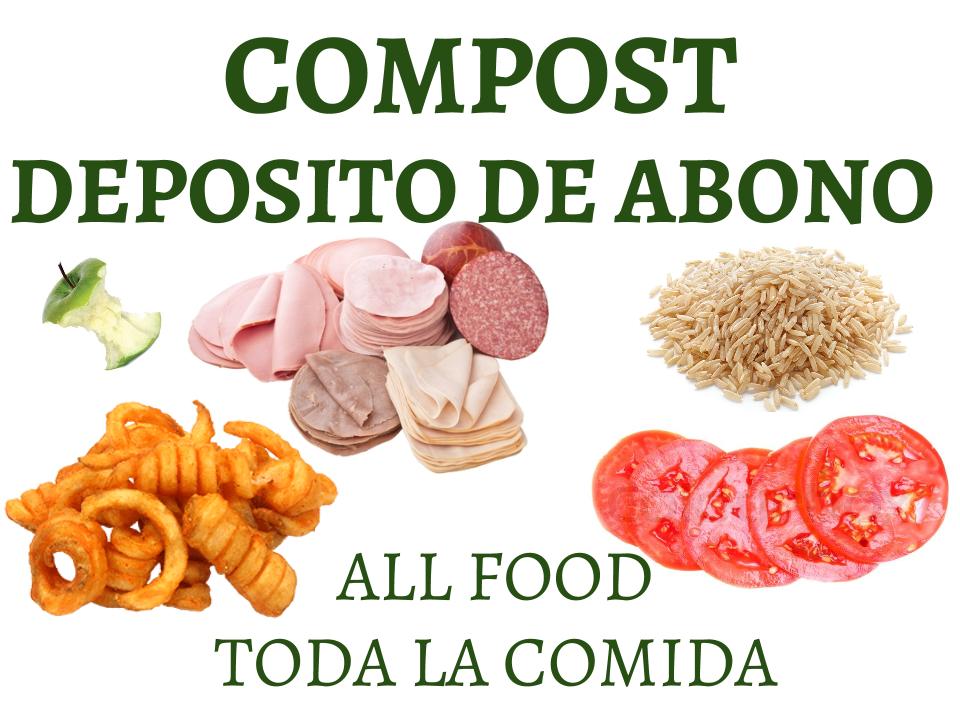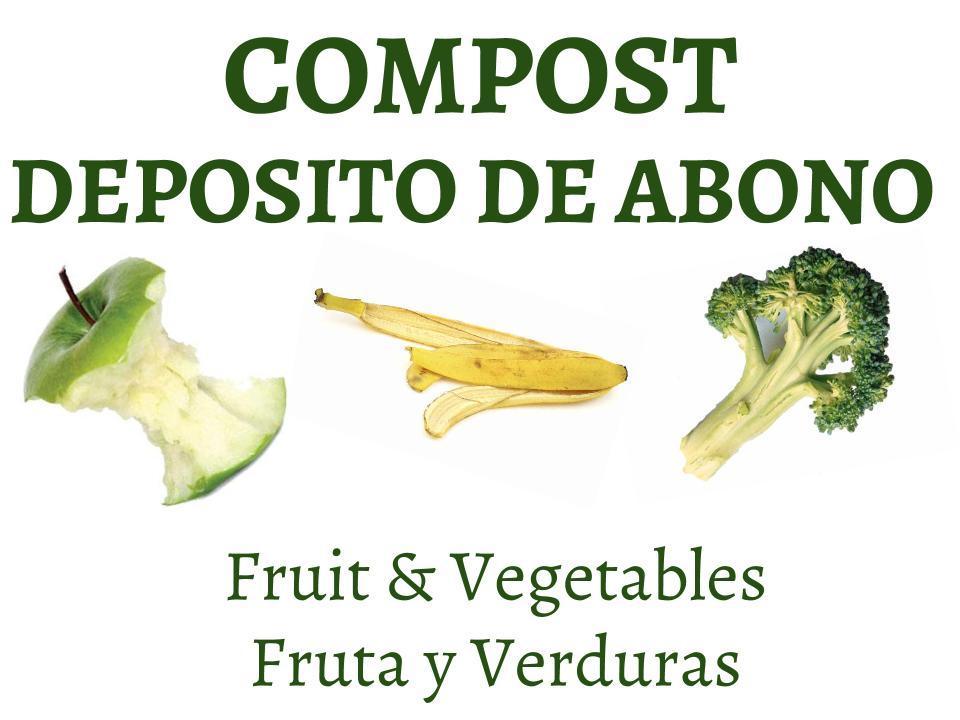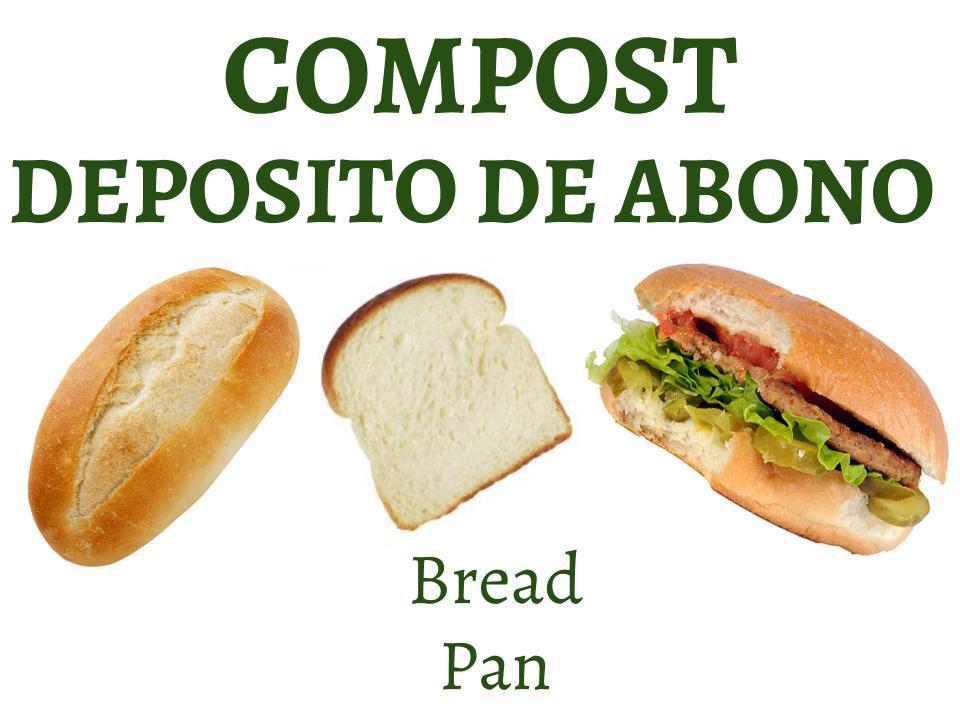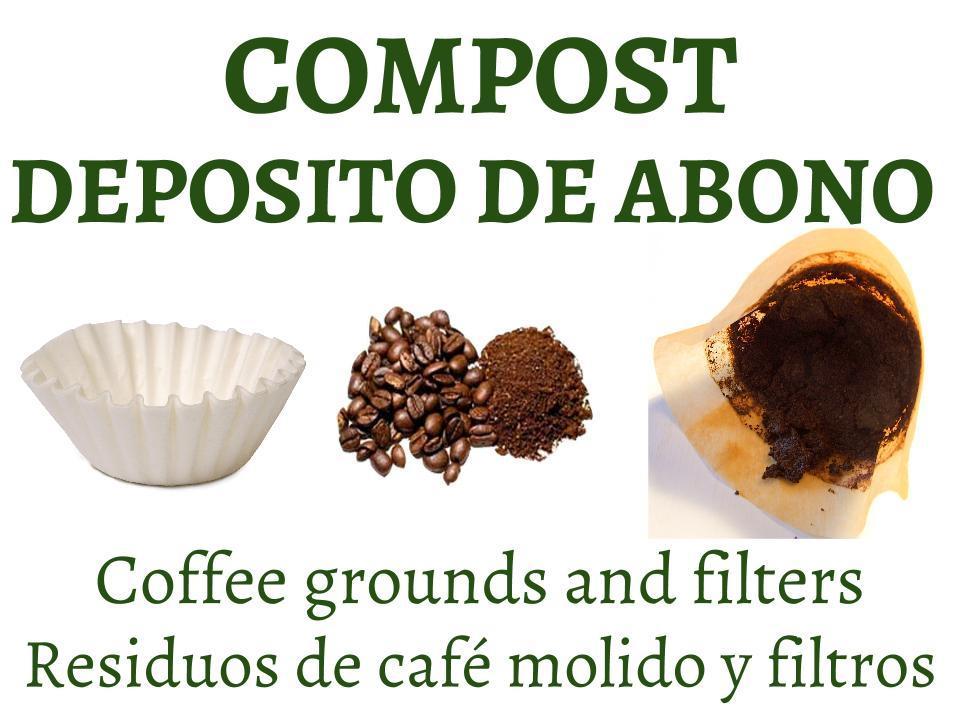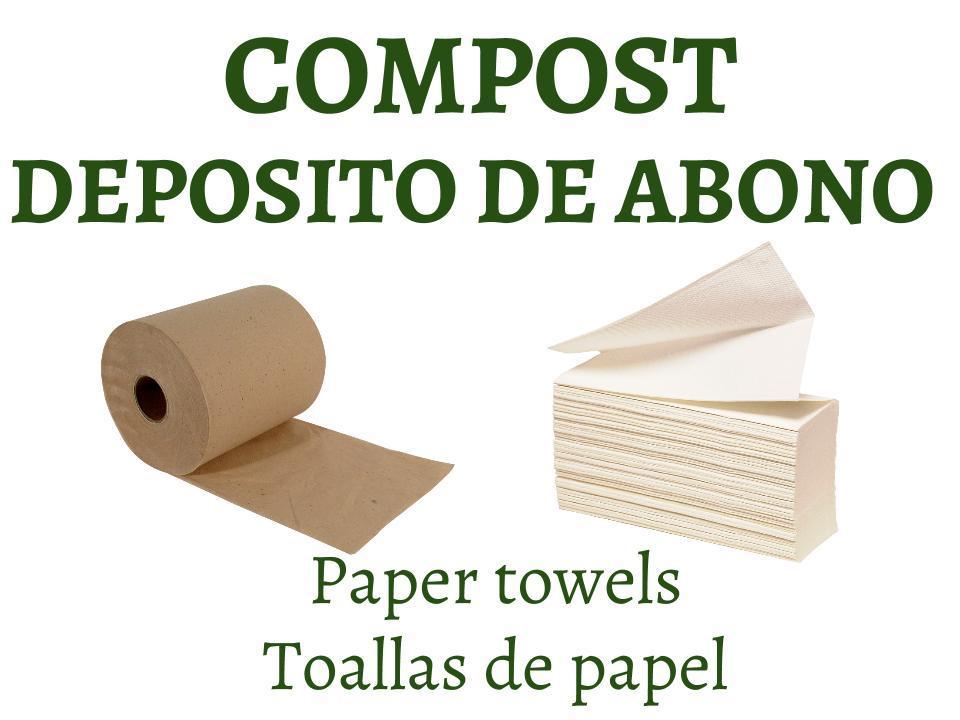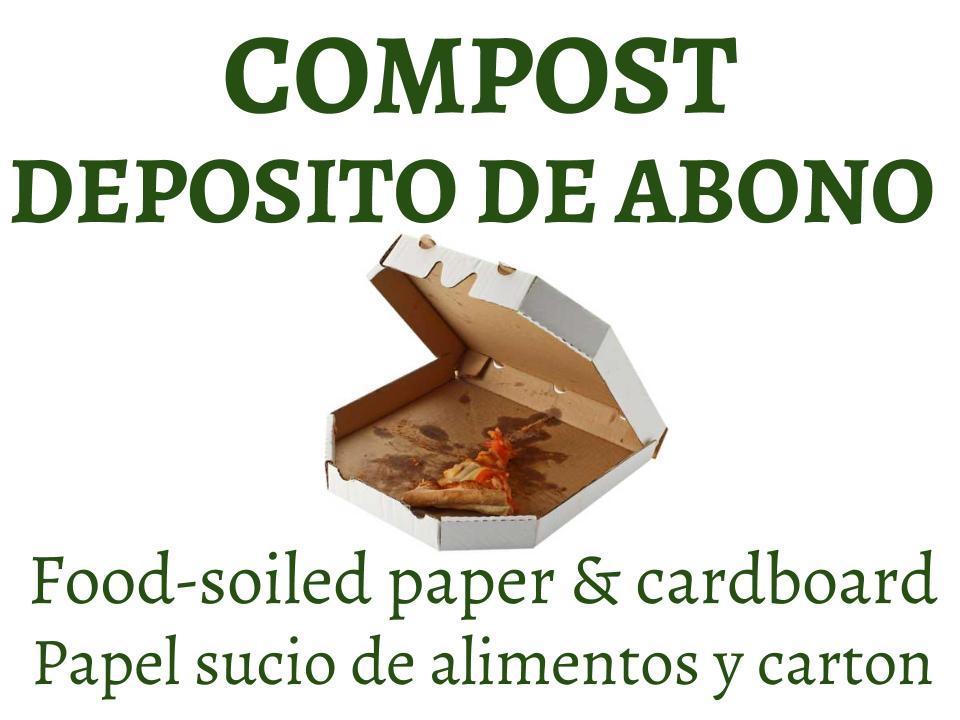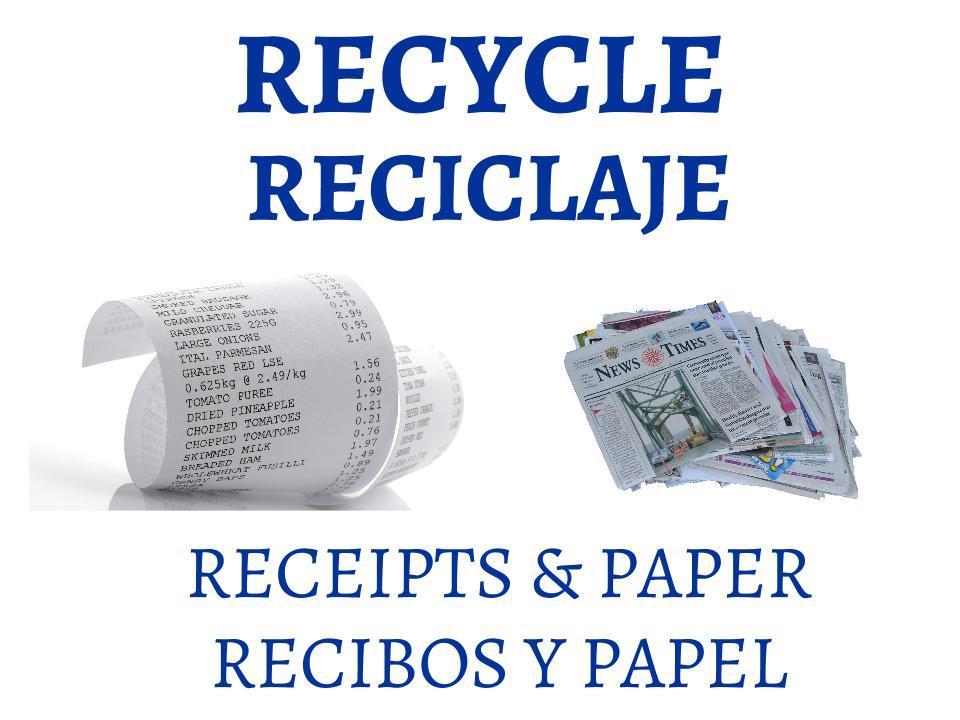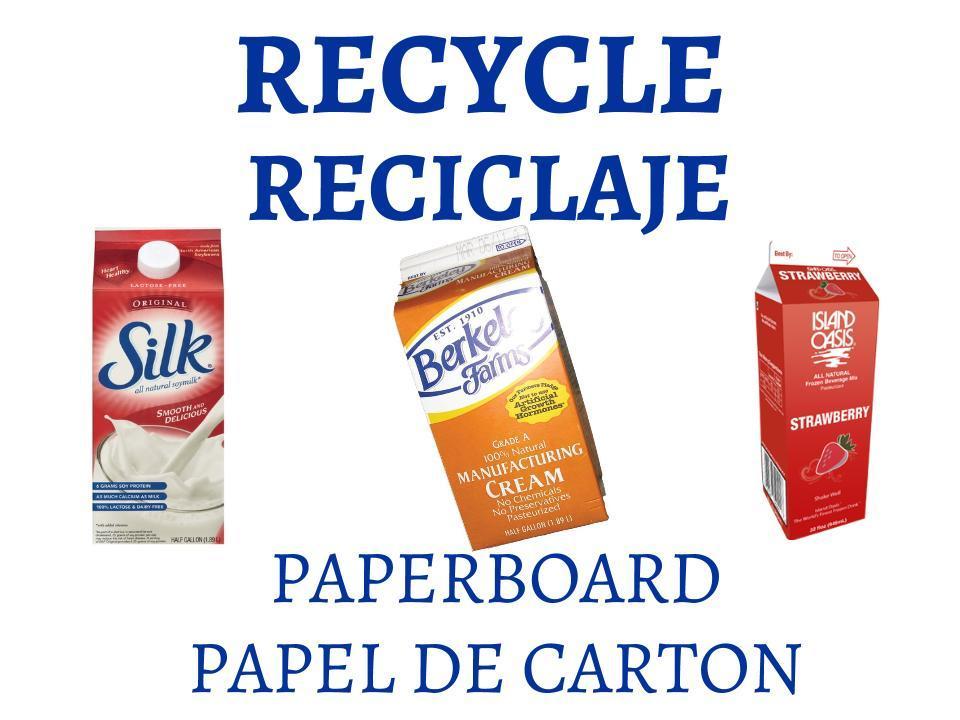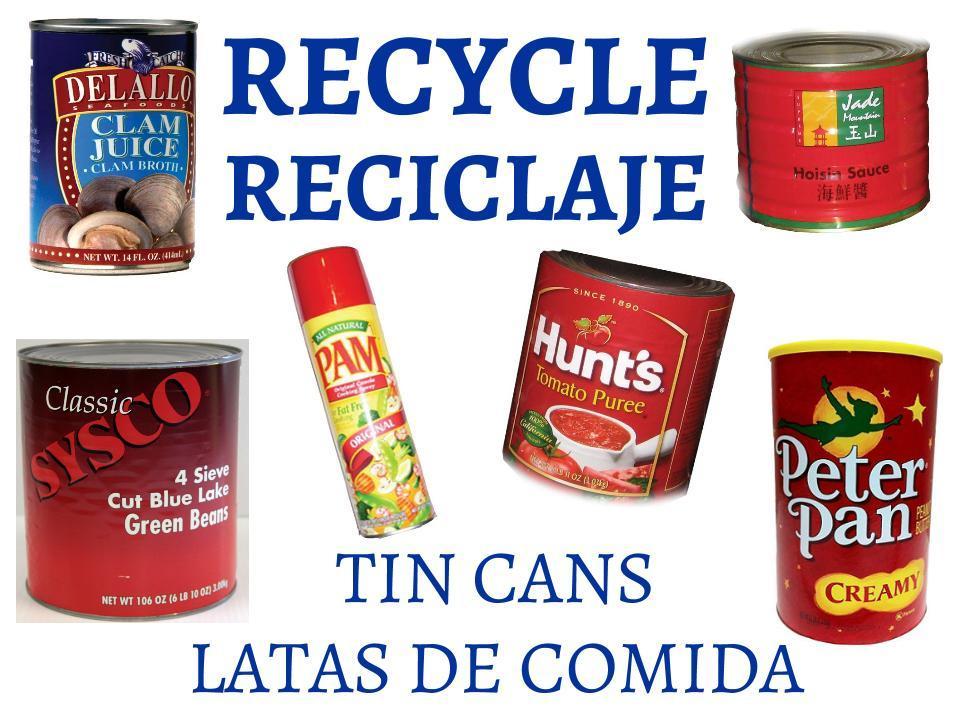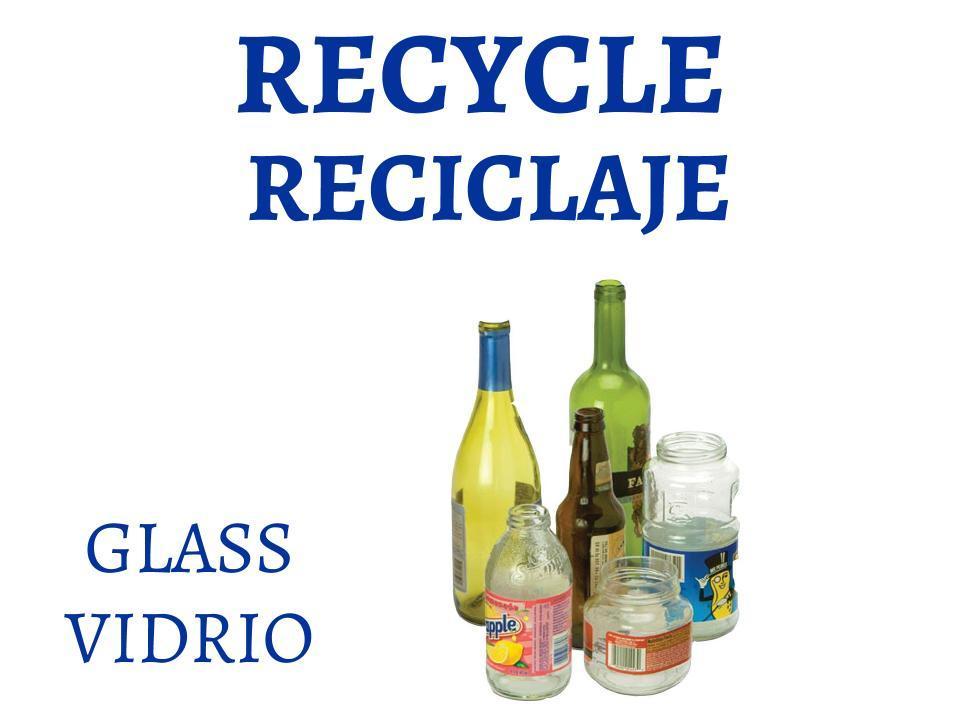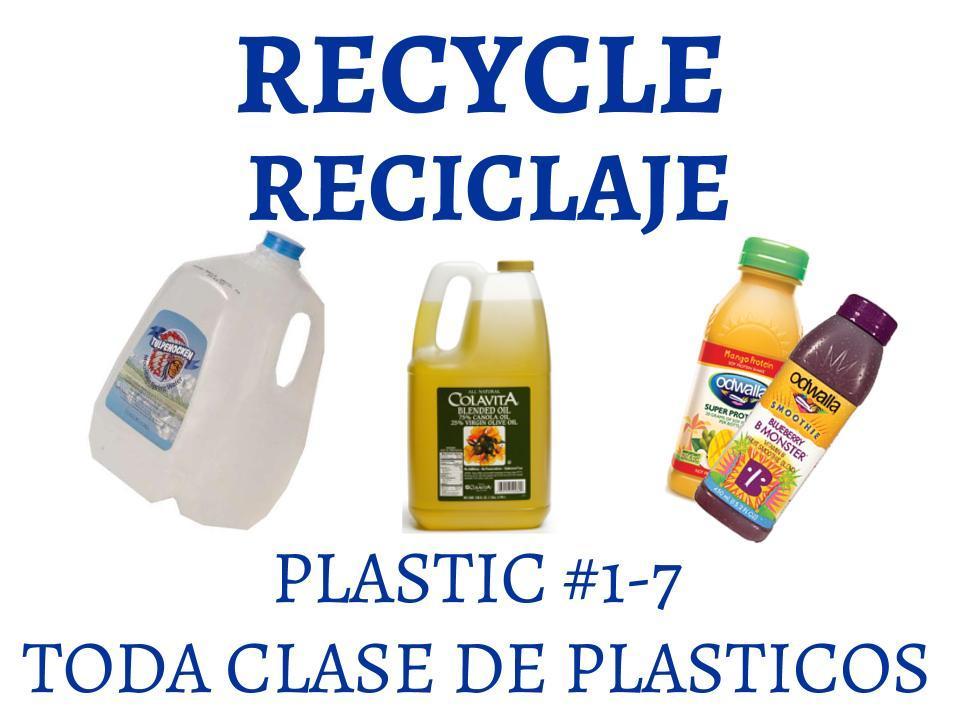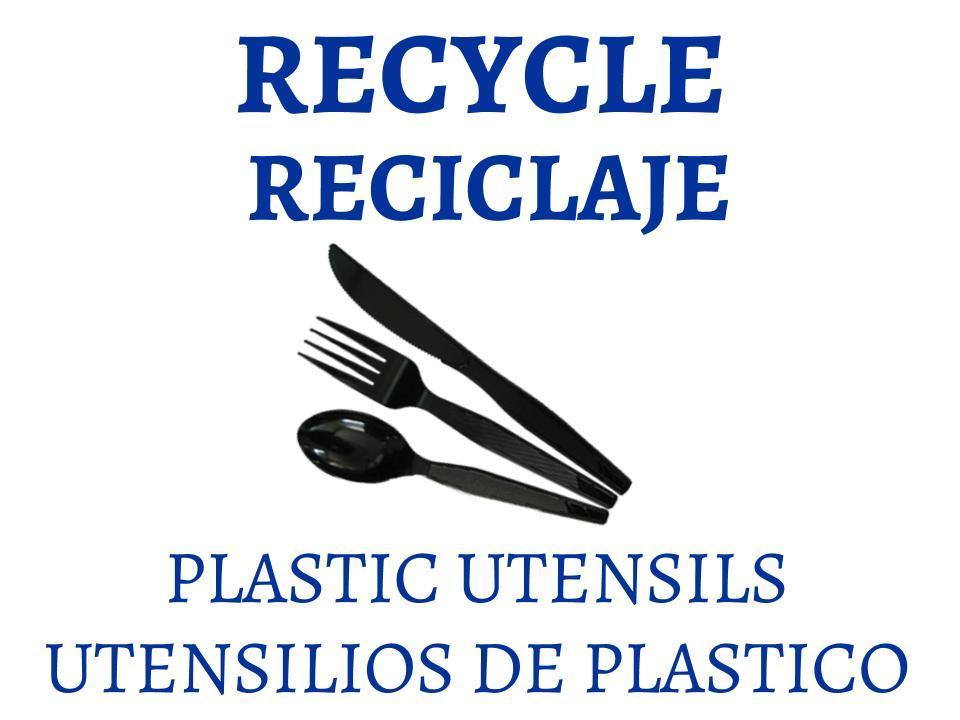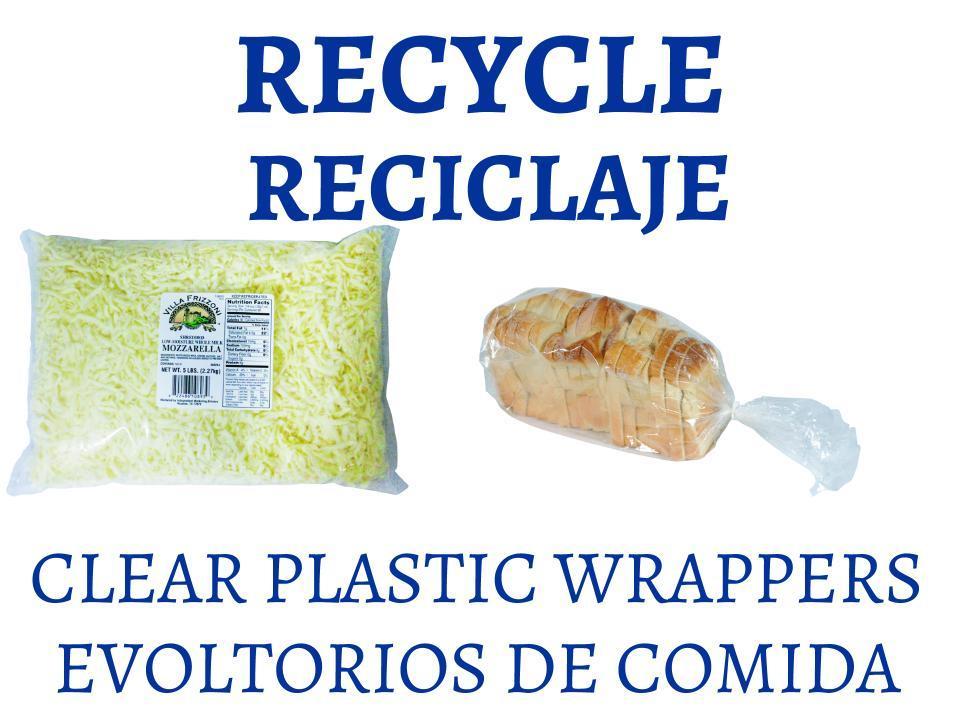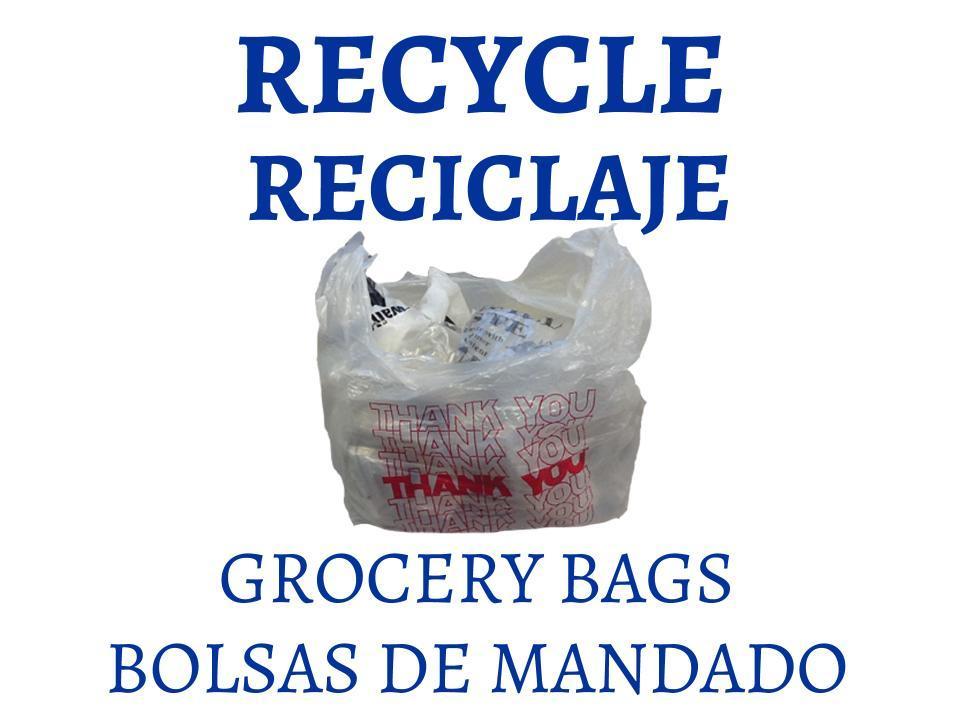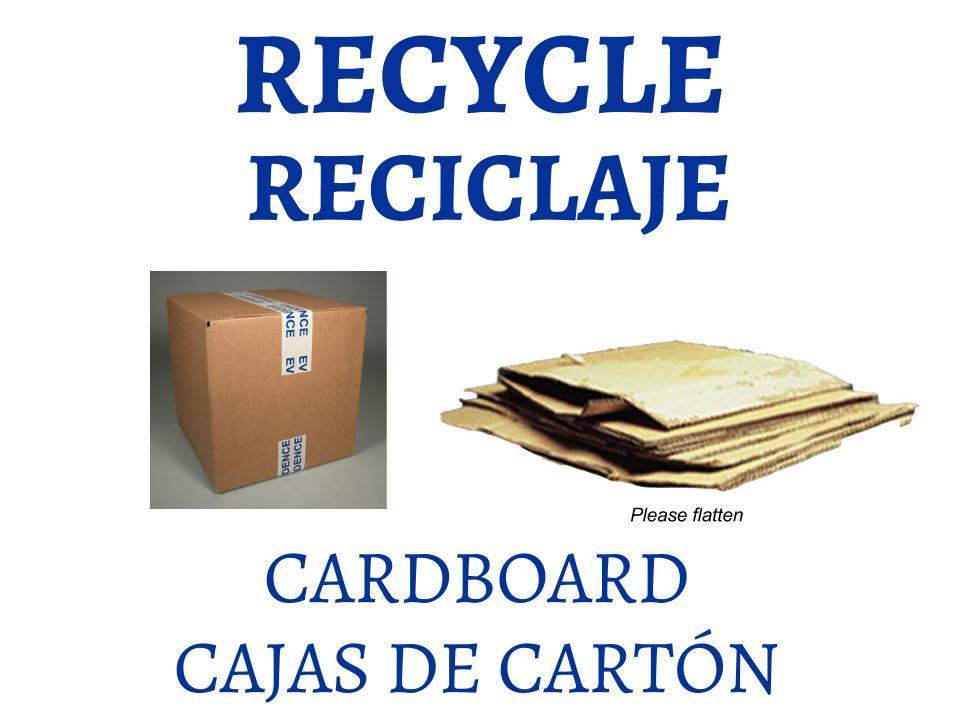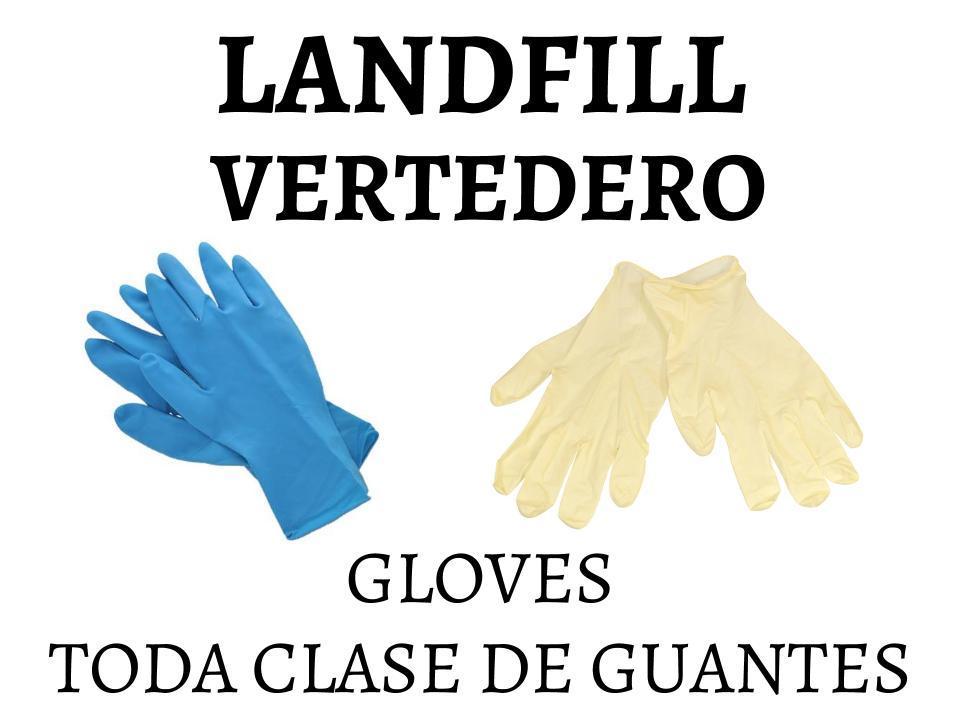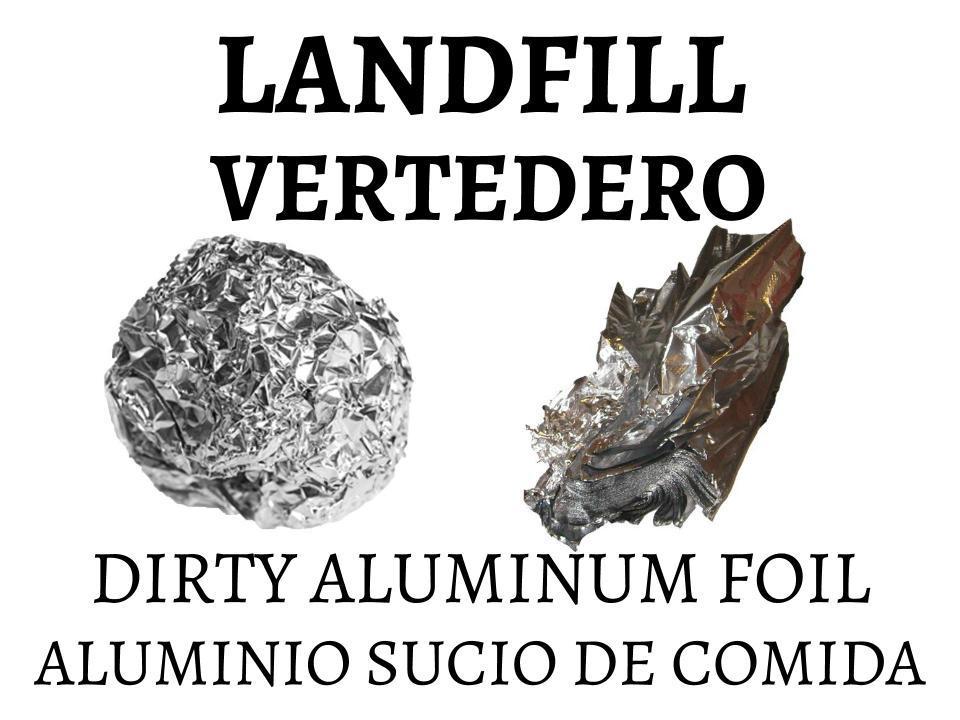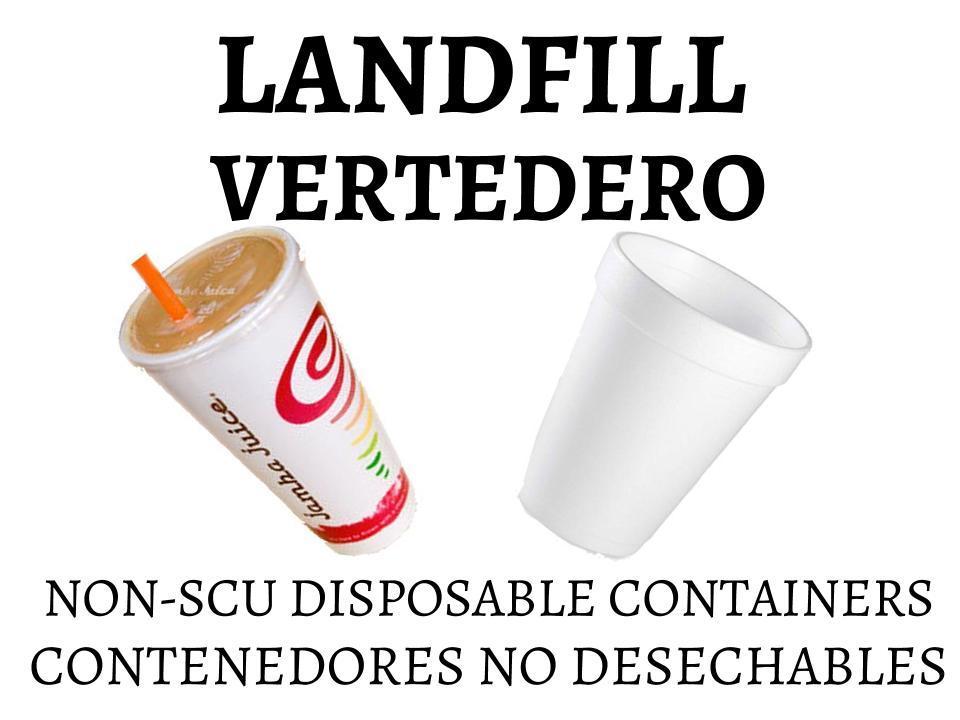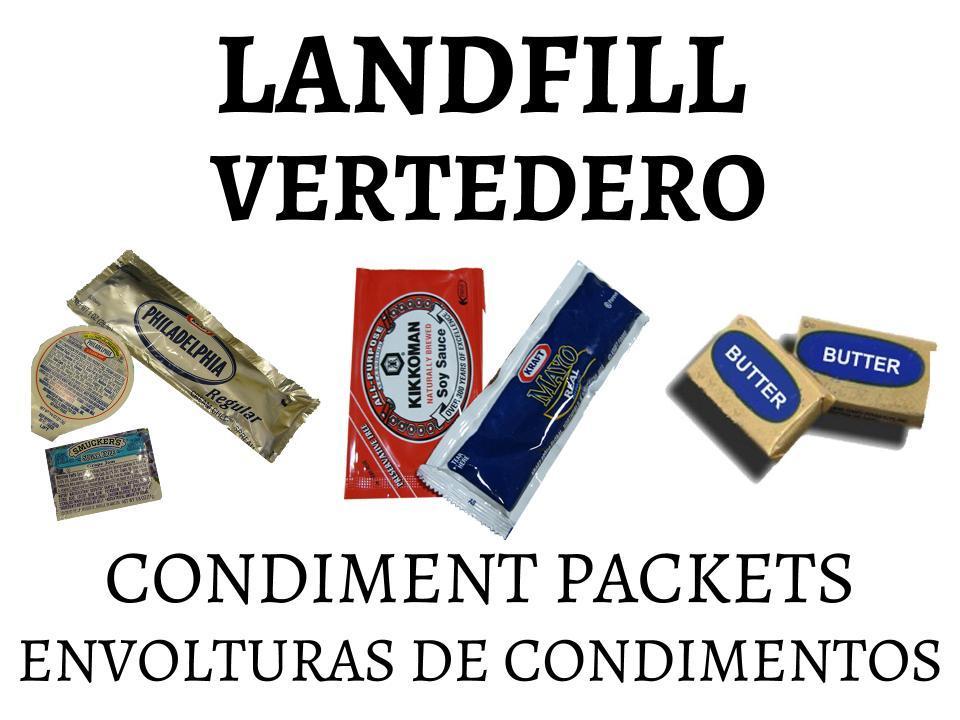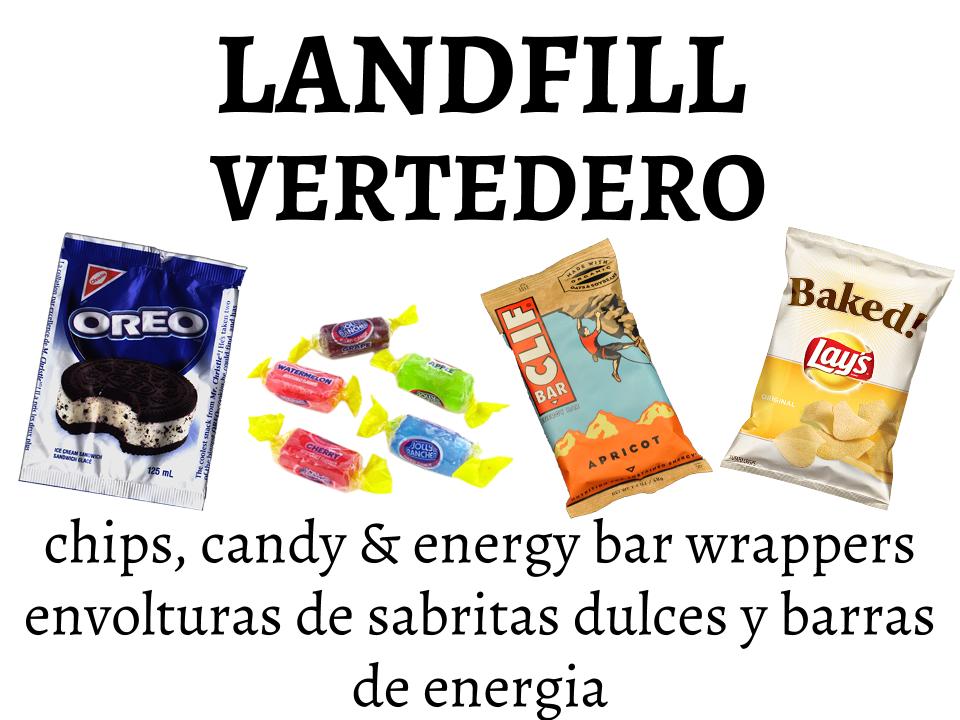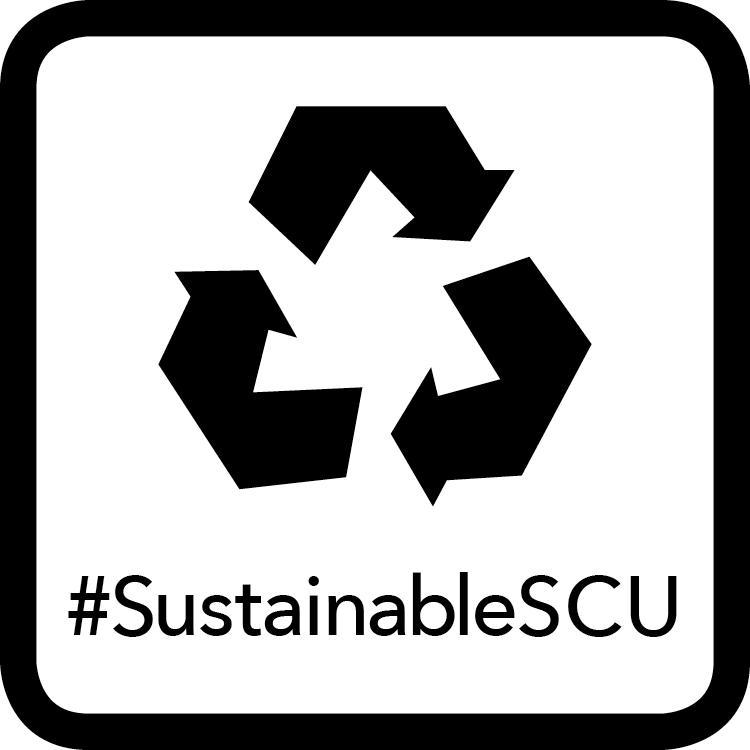What is compostable on campus?
All leftover food: Fruit, vegetables, bread, dairy, meat, fish, and bones
Food-soiled paper and cardboard: (any paper or cardboard product that is wet or greasy) Muffin & sandwich wrappers, pastry bags, pizza boxes
Dining Services to-go: Containers, plates, napkins, cups, fountain drinks (cups, lids, & straws)
Black plastic utensils are recyclable
Coffee & tea: Grounds & filters, cups & sleeves, tea bags, wooden sticks
Please recycle coffee lids
Plants
Paper Towels
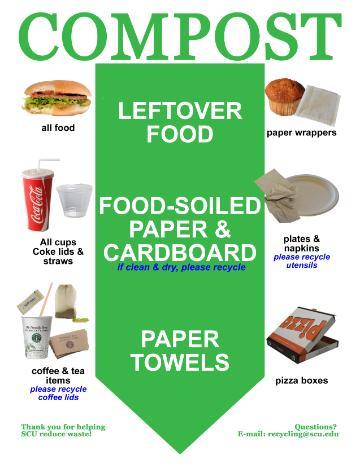
Why can we compost meat and dairy?
At SCU, we use a commercial composting facility that operates at higher temperatures and can break down more compostable items than backyard composting.
Where do I compost on campus?
Composting bins are located in Benson Memorial Center, Mission Bakery, Cadence Cyber Cafe, Sunstream Cafe, Malley Fitness Center, Leavey Event Center, residence halls common areas and external waste areas, as well as various academic buildings. Need a compost bin near your area? Email recycling@scu.edu.
How can I compost in my residence hall?
Each residence hall has a green composting bin located in its external waste area. You may collect your composting scraps and toss them in those bins daily. You may The Center for Sustainability and the Housing Office offers free, year-rental compost pail program for campus residents to compost within their own rooms. Interested in becoming a part of the program? Email recycling@scu.edu. Additionally, residence hall communal restrooms have paper towel composting now.
How can I compost off campus?
The Forge Garden holds several workshops on both backyard composting and vermicomposting (with worms) throughout the year. Visit the Forge Garden page to find the next, upcoming composting workshop!
Does extra butter and the butter wrapper go in the trash or in compost?
The extra butter goes into compost containers.
If the butter wrapper can tear easily (like paper), go ahead and throw it in the compost.
If it doesn't tear (or if it's made from foil), please put it in "landfill waste". If it looks like paper but doesn't tear easily, it's been plasticized and shouldn't be composted.
What is recyclable on campus?
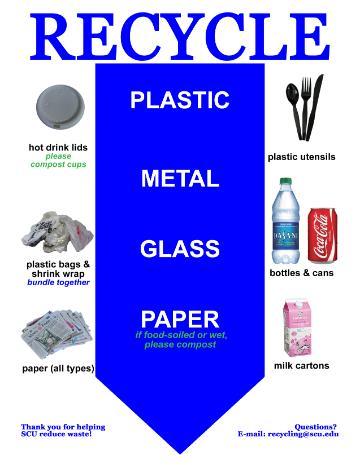
Can I recycle electronics? And what do I do with things like batteries or light bulbs?
What is Terracycle? Is is true I can recycle energy bar wrappers?
Can I recycle plastic bags and other thin-film plastics?
Can I recycle frozen food packaging?
- they haven't gotten wet
- they haven't been exposed to oil or grease (this is why pizza box bottoms are not recyclable)
- the plastic liner (common with food boxes) has been removed.
Does the recycling at SCU go to city/county recycling plants? Who recycles the material?
After the recycled materials are collected, they are stored at Facilities until picked up by the respective recycling companies.
- Aluminum, glass, plastics, and paper are recycled through Mission Trail Waste Systems.
- Some paper and all corrugated cardboard are recycled through Weyerhaeuser. SCU uses a compactor for corrugated cardboard before it is picked up for recycling.
- E-waste is handled by E-Waste Recyclers, a company out of Grass Valley.
- Batteries are processed as hazardous waste and picked up, along with other hazardous materials (such as fluorescent tubes), monthly by All Chemical Disposal.
- Ink cartridges are collected and brought to an elementary school, which recycles the ink cartridges to benefit the school.
- Green waste is handled my Mission Trail Waste Systems.
How do I recycle textbooks?
Textbooks can be recycled along with any type of paper. Because texbooks are quite heavy and have sharp corners, do NOT place them in blue paper recycling bags. Instead, please request a sturdy paper recycling container from Facilities.
Either call x4742, e-mail facilities-CSC@scu.edu, or place a work order through AIM.
How should I recycle during a campus office move?
Should bottles and cans be cleaned before they are placed in recycling bins around campus?
What do I do with printer/copy paper packaging?
Paper ream packaging IS RECYCLABLE.
In the past, these wrappers needed to be discarded in the waste bin because their waxy coating put them in a different paper recycling category.
Now, ALL PAPER TYPES can be recycled in the blue paper recycling bags near copiers, and in any container on campus labeled "recycling".
Where can I recycle newspapers?
Newspapers can be placed in any recycling receptacle.
- Residence halls: place your paper in the "recycling" bin at each residence hall’s waste disposal area.
- Throughout campus: newspapers and all other paper recyclables should be placed in any bin labeled "recycling" as well as the blue recycling bags found near copiers.
I am confused about the mixed recycling program. What belongs in mixed recycling, and where do I put recyclables?
Mixed recycling:
- Cardboard gets flattened and placed near paper recycling containers.
- E-waste and Universal waste depends on the location. In residence halls, these can be placed on the ground below the "e-waste" sign, or recycled at the building's service desk. In campus offices and other buildings, these items are either picked-up or mailed to Facilities.
We are in bit of a confusing time right now, as we update and standardize our recycling containers. We appreciate your patience!
Can light bulbs be recycled?
The vast majority of recycling programs will not accept light bulbs (such as incandescent bulbs). However, under California's Universal Waste Rule, it is illegal to dispose of compact fluorescent lights (CFLs) (and other fluorescent lights).
A single CFL contains about 5 milligrams of mercury, which can be dangerous to humans and the environment if not disposed of properly. These and other items considered universal waste must be either sent to an authorized recycling facility or to a universal waste consolidator.
More resources:
- Find a recycling center in your area Earth911.org.
- Article: Fluorsecent Light Bulbs Can Become 'Toxic Time Bombs'
- PDF: Managing Universal Waste in California
What is considered landfill on campus?
- Non-paper packaging: Chip bags, candy & energy bar wrappers, condiment packets, and butter wrappers.
- Non-SCU disposable containers: Cups & take-out containers acquired off-campus, Styrofoam, and dirty aluminum foil.
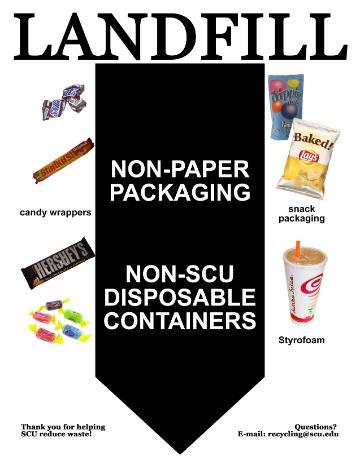
Note about recycling energy bar wrappers
-
What is considered electronic waste?
E-waste is considered anything that operates using a plug or a battery. Examples of e-waste include: computers, cell phones, televisions, microwaves, stereos, copiers, and fax machines. Because e-waste contains hazardous materials, it cannot be thrown in landfill bins. Instead, an electronics recycler must handle all e-waste and dispose of it properly. -
Where can I donate my old electronics?
If your electronics are still functioning, there are many organizations that will accept them as donations. HOPE Services, located in Santa Clara, will accept digital cameras, printers, game consoles, and much more. For a full list of items and other charitable organizations, go to earth911.com and search for electronic recyclers. -
Where can I recycle my e-waste on campus?
There are two options for recycling e-waste on campus. If you live in a residence hall, you can place electronic waste in the outside external bin area on the ground below the e-waste sign. If you are faculty or staff, recycle your electronic waste by either calling or emailing Facilities with your request (x4742 or facilities-csc@scu.edu) or by submitting a work order directly if you are set up to use AIM. -
Where does my e-waste end up?
At SCU, we send our electronic waste to a local, e-steward certified electronics waste hauler, ECS Refining. Many times, electronics can end up overseas or in prisons, where workers do not have the proper safeguards or tools to dismantle the carcinogenic materials. By sending our electronic waste to a responsible hauler, we ensure that human health and the environment are properly protected.Want to make sure that your electronics are being safely discarded? Find an e-steward recycler in your area.
-
Where can I recycle my e-waste if I live off campus?
If you live off campus, there are a variety of recyclers in the San Jose area that will accept e-waste. GreenMouse Recycling located on Race Street in San Jose accepts many household electronics. For a list of e-waste recyclers near you, check out earth911.org and type in your city.
-
What can I do with overhead transparencies?
Because the coating on the plastic for overhead transparencies is unique, they cannot be recycled on campus. Even though they can't be recycled in your regular bin, there are still many options of disposal for you to choose from. RAFT (Resource Area For Teaching) accepts these items and they can be dropped off at either their San Jose or Sunnyvale locations. They will donate these items for teachers and students to use.More information on how to donate to RAFT.
You can also send these items to 3M’s recycling program in Pennsylvania.
-
What can I do with old floppy disks?
Floppy disks are considered to electronic waste, so the best way to dispose of these items is by taking them to recycling centers that deal with this kind of inventory. There are numerous recycling centers that will accept floppy disks, whether or not the information has been removed. The closest center to SCU is Earth Care Recycling in San Jose. If you want to really get creative, you can make items items like coasters, pen holders, and notepads out of them. You can even make a Starship Enterprise. -
How do I recycle vinyl banners?
You can contact RAFT to see if they will accept them as teaching supplies. You also might want to list them on the SCU classifieds web site or ask faculty and staff members if they want to take them home for repurposing. -
What do I do with old business cards?
Fortunately, business cards, because they are made of paper, are among those items that can be recycled. If you lean towards the creative side, however, there are a number of ways in which you can reuse these cards:Cue Cards: Discreet and the perfect hand-held size, old business cards will let you keep your major points in check as well as wave good-bye to the days of clunky index cards.
Matching Game: You've been left with your four year-old niece in a surprise babysitting scenario, with the minute hand ticking by slower than the rate of tectonic plate shifts. Only amateurs leap for the television remote; you have your business card matching game on hand! To prepare, just take all those leftover cards and either paint or color them in pairs on the blank side, and voila!
Love Cards: Forget about Valentine's Day; who knew your stodgy business cards could become one of your most romantic gestures? They're the perfect size for little notes to be left in your loved one's purse, under the pillow, or in his or her lunch bag. You get extra points if you decorate them with paint and glitter.
Gift Cards: Take two cards, glue the printed sides together, take care of your 'To' and 'From', hole punch the corner, and use a ribbon to attach it to your thoughtful present. So long, five-dollar greeting cards.
Shopping List: Was it baking soda or baking powder you needed? Oh wait; you can just check your mini business card shopping list. -
Can I recycle old carbonless copy forms?
Carbonless paper can be safely recycled like most other paper. It should, however, not be confused with carbon paper, which is a black inky sheet placed between two sheets of paper to make a pressure copy. Carbon paper cannot be recycled. -
Are CDs recyclable?
Currently, our Facilities department does not accept CD's as recyclable materials. However, there are a couple different options for you to recycle or reuse CD's:
- If you're getting rid of store bought CD's (with the case and paper insert), you can donate them to a used CD store or bring them to Goodwill or Salvation Army.
- Resource Area for Teaching (RAFT) will accept any type of CD and/or CD case.
- Or, you can send them to The Compact Disc Recycling Center of America, 68H Stiles Road Salem, NH 03079. This center will recycle the case and paper insert as well.
- If you want to get really creative, there are plenty of other ways to reuse old CDs.
-
How do I recycle my batteries and ink cartridges on campus?
If you live in a residence hall, you can drop off CDs, batteries and ink cartridges in the blue tower containers in your residence hall lobby. It is important that you not place these items in the regular landfill or recycle bins because they contain harmful heavy metals that need to be handled carefully.Faculty and staff can send CDs, batteries and ink cartridges through the inter-campus mail system to Facilities. If you have a large toner cartridge, you may request a pick-up from facilities by calling or emailing them with your request (x4742 or facilities-csc@scu.edu).
-
How do I recycle batteries and ink cartridges off campus?
If you live off campus and are looking to recycle your batteries, you can place them in a bag on top of your curbside recycling toter, drop them off at the City of Santa Clara Battery Drop-Off site located at 1500 Warburton Avenue, or you can take them to one of our local fire stations. Office supply stores such as Staples and Office Depot accept ink cartridges, as well.
My department has a lot of extra office supplies (binders, folders, etc.). Where can we send them?
One option is to donate these items to the Resource Area For Teachers (RAFT).
RAFT is a non-profit organization that believes hands-on teaching is the best way for teachers to teach and students to learn. They provide creative hands-on activities, educational resources, workshops and inexpensive materials, (many donated by local businesses), to enrich pre K-12 education and community group programs.
Another place you can donate extra office supplies is to the Share Shelf on campus! The Share Shelf is a program where you can give, take, and share used office and school supplies.
Some places you can donate to are:
Salvation Army Thrift Store
- They will accept appliances, clothing, books, and many other items you have to donate.
- If you are looking to donate your mattress, the Salvation Army Thrift Stores in both Santa Clara and San Jose will take drop-off mattresses as well as do pick ups (though you must call ahead and schedule a time). In order to donate a mattress it must be clean, unstained, and untorn.
Home Safe
- Home Safe is a part of a larger umbrella organization called Next Door Solutions to Domestic Violence. Santa Clara University has a very close relationship with both Home Safe shelters in San Jose and Santa Clara, which is very close to our campus. As victims of domestic violence and homelessness, the women and children of Home Safe are allowed to stay in the shelter for three years or more as they transition into a new life and attain a more stable economic situation. The shelter offers a multitude of support including job training, resume reviews, and even poetry classes. Many Santa Clara students help with the child care programs that Home Safe offers, allowing women time for themselves to benefit from other Home Safe programs.
- HOPE Services delivers a range of employment and job training programs, developmental activities, professional counseling, children's services (age 0-3), senior services, community living services and mobility training for over 2,500 children, adults and seniors. Hope Services will collect donation items to be resold at their HOPE Station store in Fremont (39418 Fremont Blvd), or at the chain of Savers thrift stores throughout California. Proceeds from the HOPE Station Store directly benefits HOPE clients with job training, job placement and independent living services.
Where can I donate clothing?
Organizations like Goodwill and Salvation Army are happy to accept clothes in 'good' condition, which means they shouldn't be ripped or stained. However, for those clothes that have seen better days, there are still a number of options that will put them to good use:
- 7th Generation Recycling accepts cotton clothing scraps, along with used clothing or textile items like pants, dresses, hats, shirts, drapes, curtains, blankets, towels, sheets, handbags, belts, paired shoes, and even stuffed animals! Conveniently, they have a green collection bin located on Lafayette St. near Frozo's.
- Contact your local animal hospital. Some will accept clothing scraps to use as bedding for hospitalized animals.
You can also reuse old clothes in the following ways around your home:
- Old tshirts are great to cut up and reuse as cleaning rags.
- Use them in arts and crafts projects.
- Save the buttons in case you lose some from your other clothes.
Where can I donate food?
- If you are a student with dining points and have extra points at the end of the quarter, you can donate some of your points in Benson to Second Harvest Food Bank. These points will go towards buying food for SHFB to distribute at various locations.
- You can also donate canned and unperishable foods at the library to help pay library fines or at drop off boxes outside of The Cellar or the Sidewalk Shop at the end of the quarter.
- The Feeding America nationwide network of food banks accepts donations and distributes more than 3 billion meals each year throughout the United States. Find your local food bank here.
-
Can I recycle plastic bags and other thin-film plastics?
Yes! You can recycle plastic bags and other thin-film plastics both on and off campus by bundling them all together in a clear, plastic bag and knotting them at the top. This ensures that they stay clean and don’t get blown away during the transportation process. -
Can I recycle plastic wrappers?
Yes and No.
Plastic wrappers such as candy wrappers or sports bar wrappers cannot typically be recycled.
However, organizations like TerraCycle have creatively discovered new ways to repurpose these items. Campus Recreation began collecting energy bar wrappers in 2013 for recycling with TerraCycle. Bring your wrappers to the blue collection bins located in the main lobby of Pat Malley Fitness and Recreation Center. Learn more. -
Can I recycle Styrofoam?
No. Unfortunately, Styrofoam cannot be recycled. Because it is 98 percent air, it easily breaks into extremely tiny pieces, which makes it too difficult to recycle. Styrofoam belongs in landfill bins.
See our Move-Out Waste Diversion Page for more info
How Do I Recycle My Old Mattresses?
Mattresses have many components that can be recycled. The wood, foam, cotton, and metal springs can all be reused, which is why there are many organizations that are willing to accept mattresses in the Bay area.
If you are looking to donate your mattress, the Salvation Army Thrift Stores in both Santa Clara and San Jose will take drop-off mattresses as well as do pick ups (though you must call ahead and schedule a time). In order to donate a mattress it must be clean, unstained, and untorn.
If you just want to recycle the mattress, the city of Palo Alto Recycling Drop-Off center is a good place to take it. They are located on 2380 Embarcadero Way. Bob's Foam Factory in Fremont will also take old mattresses, though they only accept mattresses that contain polyurethane foam.
For a more complete list of recycling centers, you can check out earth911.com and enter mattresses.
Lastly, if your mattress is still in decent condition, you can try reselling it on Craigs List and avoid the landfill altogether.
What do I do with clothes that aren't in good enough condition to donate to places like Goodwill?
Organizations like Goodwill and Salvation Army are happy to accept clothes in 'good' condition, which means they shouldn't be ripped or stained. However, for those clothes that have seen better days, there are still a number of options that will put them to good use:
- 7th Generation Recycling accepts cotton clothing scraps, along with used clothing or textile items like pants, dresses, hats, shirts, drapes, curtains, blankets, towels, sheets, handbags, belts, paired shoes, and even stuffed animals! Conveniently, they have a green collection bin located on Lafayette St. near Frozo's.
- Contact your local animal hospital. Some will accept clothing scraps to use as bedding for hospitalized animals.
You can also reuse old clothes in the following ways around your home:
- Old tshirts are great to cut up and reuse as cleaning rags.
- Use them in arts and crafts projects.
- Save the buttons in case you lose some from your other clothes.
Be creative! These are only a few suggestions out of an infinite number of possibilities for reuse!
I know facilities can come to pick up TV's and remote controls to recycle. Can they also recycle printers?
All e-waste can be recycled at Santa Clara University. E-waste includes materials that use batteries or have an electronic cord. A printer is an acceptable example of E-waste.
Students in the residence halls should place e-waste in the designated spot in their recycling and waste area (there should be a sign that reads "e-waste").
Faculty and staff should contact Facilities at extension 4742 to arrange for a pick up.
I have a dead computer. How can I get it recycled?
You will need to contact Facilities to arrange for pick-up. Your computer will be responsibly recycled this way.
This can happen a couple ways:
- call or e-mail Facilities with your request (x4742 or facilities-csc@scu.edu)
- submit a work order directly if you are set up to use AiM
How do I recycle textbooks?
Textbooks can be recycled along with any type of paper. Because texbooks are quite heavy and have sharp corners, do NOT place them in blue paper recycling bags. Instead, please request a sturdy paper recycling container from Facilities.
